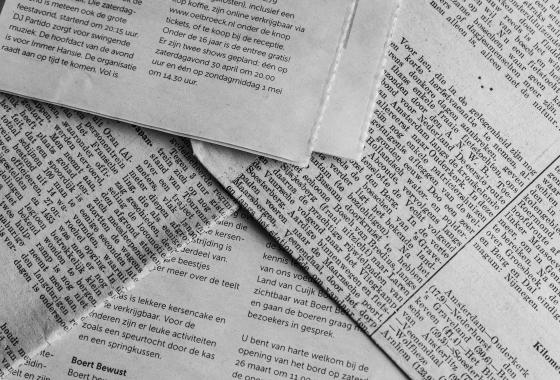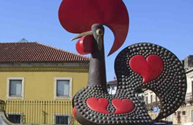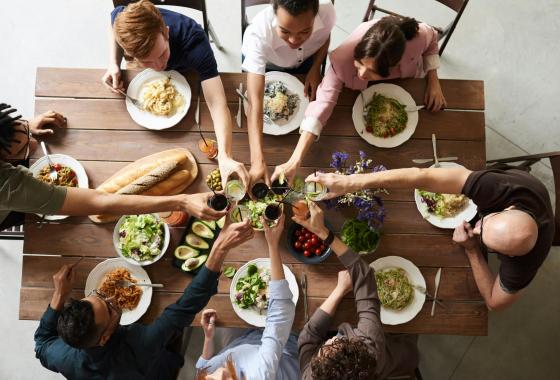
U05E - Gas
Category : Utilities
U05E - Gas
Often the cheapest and most convenient energy source for cooking, water heating, and room heating is gas. Some housing estates or blocks of flats, especially in the Algarve, have communal piped gas supplied from a central storage tank, usually propane. However, many houses still rely on bottled gas. Both butane and propane are available; butane is the most commonly used and comes in both 11 kg and 45 kg bottles.
Unfortunately, gas appliances remain one of the causes of accidents in Portugal, particularly in larger towns where installations are old or poorly maintained. The Portuguese Government has strengthened building regulations, created a licensing system for gas installers and inspectors, and requires regular inspections of gas systems.
Authorised installers and inspectors
Gas installers are licensed by the DGEG - Directorate of Energy and Geology (Direcção-Geral de Energia e Geologia) and should carry a copy of their licence. Only licenced installers should carry out installation and maintenance of gas systems and appliances.
The DGEG also appoints independent Gas Inspectors. These are technicians trained and licenced to carry out regular safety inspections of gas systems. They do not carry out installation or maintenance work. The issue of a gas certificate (Certificado de Inspeção de Gás) costs about €60 and the list of technicians can be seen HERE.
Inspections
Domestic residential use
Owners of houses used for permanent domestic residence are legally required to have their gas installation inspected every five years.
Tourist accommodation
Houses or apartments used for short-term tourist accommodation (Alojamento Local) are subject to stricter rules: a valid gas inspection certificate (Certificado de Inspeção de Gás) is required at the time of licensing and must be renewed through regular inspections.
General rules
Inspections are required every 5 years for residential systems older than 10 years, and every 3 years for public-use or commercial installations. Inspections are also mandatory after renovations, conversion to a different type of gas, or if defects or leaks are detected.
Installations with piped gas supply
The piped gas supplier will normally carry out an inspection of the system before providing a supply. Suppliers must also provide safety information and ensure access to licensed installers and service technicians.
Installations using gas bottles
Owners of bottled gas installations should request safety information from their supplier. Some suppliers also offer domestic accident insurance packages for their customers.
Storage rules for bottles
Keep bottles outside buildings whenever possible, in secure, well-ventilated storage rooms
Bottles must be fitted with a pressure-reducing valve*
*Note: propane and butane require different valve pressures – never interchange, as this is dangerous
Flexible rubber tubes must:
Be less than 80 cm long
Bear the certification mark IPQ ET 1038 or NP 1038
Show a valid expiry date
Be properly clamped at both ends
Store bottles always in an upright position, with the valve on top
Bottles must be kept above ground level – never in basements or low-lying enclosed areas where gas may accumulate
Keep bottles at least 1.5 metres away from ovens, heaters, or other heat sources
What you can do – Practical checks
Flexible hoses: Check expiry date, correct clamping, and signs of cracking. Replace at least every five years.
Flame colour: Gas flames should be clear blue. A yellow-tipped flame indicates poor combustion and possible carbon monoxide risk – service is required.
Burners: If flames go out when the heat is quickly reduced, burners may need cleaning or adjustment.
Gas taps & exhaust: Regularly check that the main gas tap and valves function properly, and that exhaust gases from water heaters discharge safely through the flue.
In case of gas smell (gas leak)
Do not use flames to search for leaks
Do not switch electrical devices on or off (to avoid sparks)
Shut off the gas supply immediately (main tap, meter valve, or bottle valve)
Open windows and doors to ventilate the space
Leave the area if the smell is strong
If there is immediate danger (fire, risk of explosion, or people in danger), call the emergency number 112 (Fire Brigade)
If there is no immediate danger, contact your gas supplier or a licensed gas technician as soon as possible
Sources
Gás de Portugal SA
Ministerial Order no. (Portaria n. º) 362/2000 of 20 June





